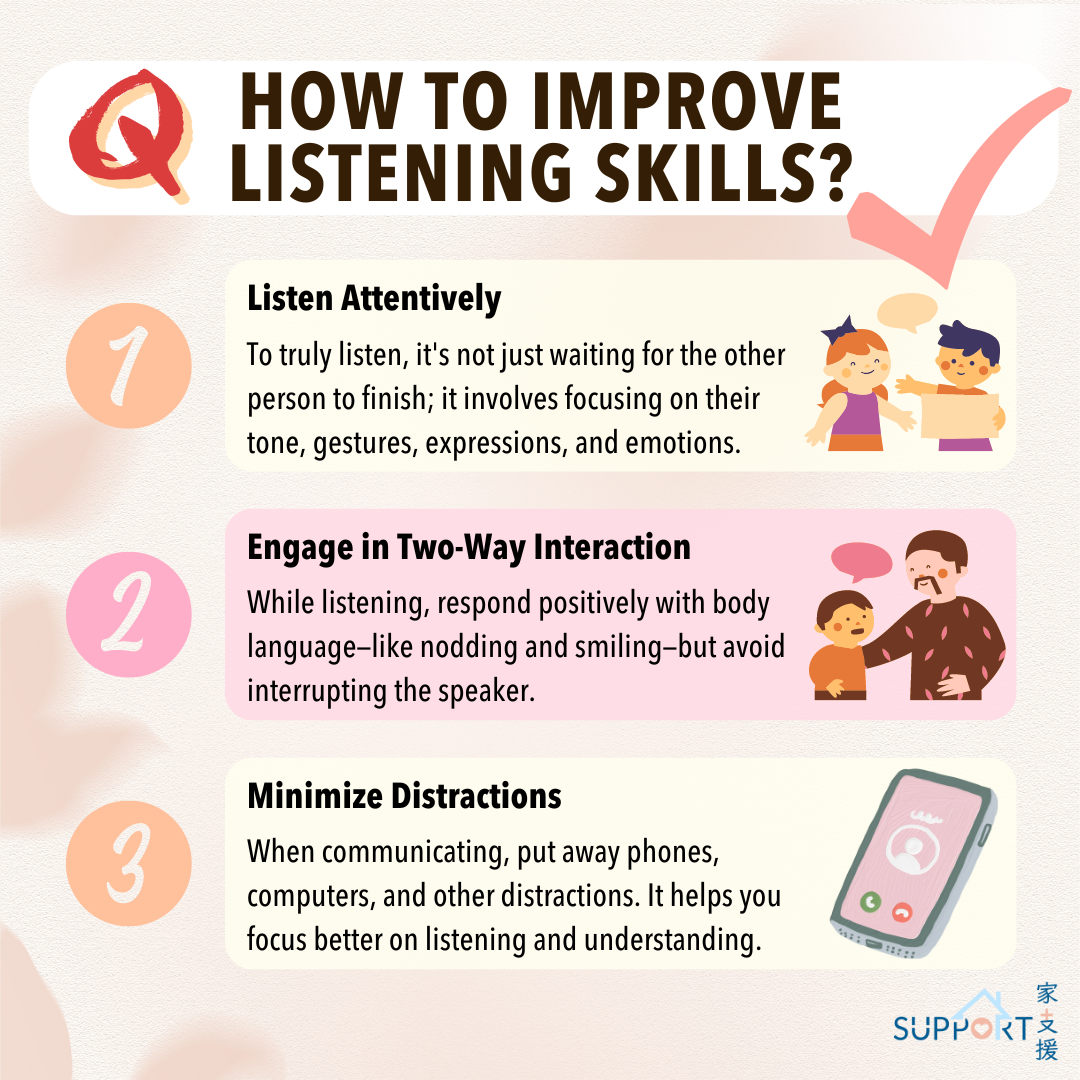Listening can be challenging, but it’s an important skill to develop. Here are some practical tips to improve your listening:
1. Listen Attentively: Focus on the speaker, paying attention to their tone, gestures, expressions, and emotions. The rhythm and intonation of their speech can convey important underlying messages.
2. Engage in Two-Way Interaction: While listening, respond positively with body language—like nodding and smiling—but avoid interrupting the speaker. Wait until they have finished sharing their thoughts before expressing your own views.
3. Minimize Distractions: When communicating, put away phones, computers, and other distractions. This helps you focus better on listening and understanding.



